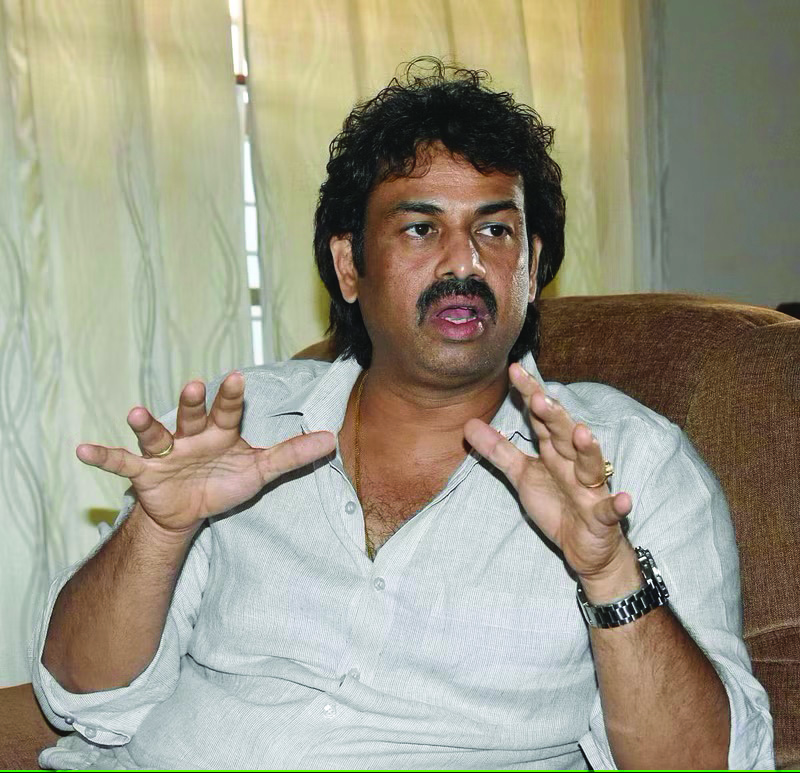Reshma Ravishanker (Bengaluru)
 With student enrolment in the state’s 49,679 government schools showing consistent decline, Karnataka’s Congress government which was voted to power last May, has announced a plan to upgrade 600 government schools to the status of Karnataka Public Schools (KPS) by March 2024. On October 7, Madhu Bangarappa, minister for school education and literacy, announced that the state government will upgrade 3,000 government schools to KPS status in a phased manner over the next five years.
With student enrolment in the state’s 49,679 government schools showing consistent decline, Karnataka’s Congress government which was voted to power last May, has announced a plan to upgrade 600 government schools to the status of Karnataka Public Schools (KPS) by March 2024. On October 7, Madhu Bangarappa, minister for school education and literacy, announced that the state government will upgrade 3,000 government schools to KPS status in a phased manner over the next five years.
Conceptualised in 2018-19, KPS are designed to “serve as model schools, equipped with best in-class facilities, incorporating primary, secondary and pre-university institutions”. The biggest draw of KPS schools is that they provide English-medium instruction cf. government schools where medium of instruction is Kannada or the vernacular mother tongue. Currently, 276 KPS schools are operational statewide.
The immediate provocation for this announcement is a noteworthy dip in student enrolment in government schools this academic year, which has declined from 4.54 million in 2022-23 to 4.29 million in 2023-24. Conversely, student numbers in private schools has risen from 4.5 million in 2022-23 to 4.64 million in 2023-24.
Medium of instruction apart, the general condition of government schools in Karnataka (pop. 63 million) is pathetic. The Karnataka high court has repeatedly reprimanded the state government for not providing basic facilities such as drinking water and toilets in public/government schools. Recently, the court cited the Central government’s Unified District Information System for Education (UDISE) data to the effect that 823 government schools lack drinking water facilities and 464 don’t have toilets.
While welcoming the government’s initiative to upgrade 600 public schools to KPS status by next March, B.S. Rishikesh, head, Hub for Education, Law and Policy, Azim Premji University, Bengaluru, is sceptical about the government achieving this modest target. “KPS schools were conceptualised as model schools offering teacher-student ratio as per the RTE Act (1:30), with separate subject teachers for English and Kannada-medium classes. I am doubtful about government capability to establish 600 additional KPS schools by the next academic year. The estimated cost for upgrading a government school into a KPS is Rs.5 crore. Therefore, the government needs Rs.3,000 crore for 600 KPS schools plus a budget for recurring expenses. Moreover, there’s the challenge of training and upskilling teachers in such a short timeframe,” says Rishikesh.
In this connection, it’s pertinent to note that the estimated cost of fulfilling the Congress government’s pre-election promises — 10 kg free rations per month, free bus rides for women, 200 units of free electricity for all households, Rs.3,000 per month for unemployed graduates and Rs.1,500 for unemployed diploma holders — is Rs.52,000 crore per year.
Nagasimha G. Rao, director, Child Rights Trust, a Bengaluru-based NGO, also believes that little will come from this over-ambitious target. “This announcement has been made for publicity reasons. Children haven’t yet made good the pandemic-induced learning loss. The state government should focus on continuing kalika chetarike — the remedial programme introduced by the BJP government to address learning loss of government school students during the Covid lockdown. Moreover, before we establish more KPS schools, we must have a full report card on the existing ones — student learning improvement and outcomes, teachers’ qualifications, best practices, etc.”
While the Congress state government’s proposal to upgrade 600 government schools to KPS institutions by March 2024 and another 2,400 over the next five years is well-intentioned and welcome, it clearly hasn’t done the math to fund this programme. All questions to the education minister about budgetary allocations made for the KPS upgradation initiative have remained unanswered.
With Karnataka’s budgetary education outlay of Rs.37,557 crore for 49,679 primary-secondary schools, 41 state universities and miscellaneous skilling centres fully stretched and the state government running a fiscal deficit of Rs 60,581 crore, and Rs.52,000 crore committed to fulfilling the Congress party’s preelection freebies, the axe is certain to fall on education and health outlays. Therefore, raising even 600 government schools to KPS status is likely to be mission impossible.
Also read: Karnataka: Textbooks ping pong























